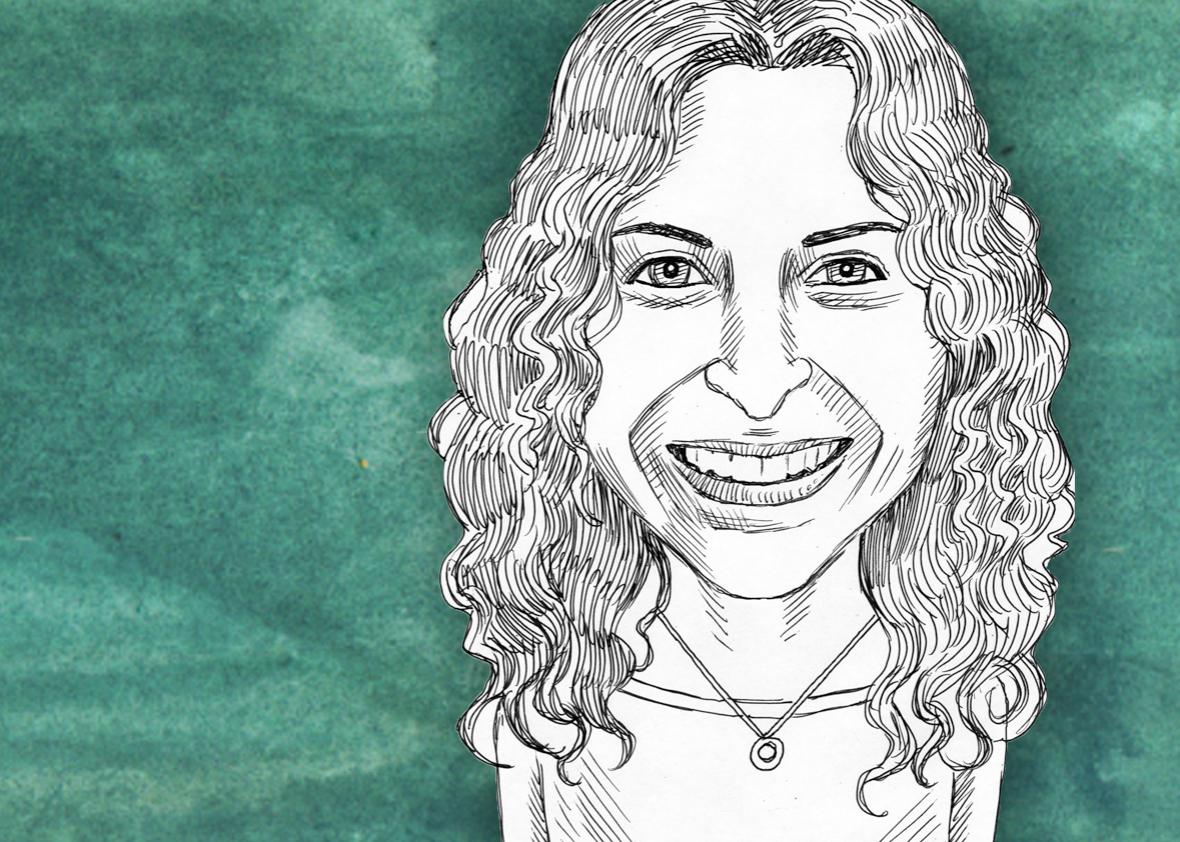Katy Waldman’s Slate essay “There Once Was a Girl,” on anorexia in life and literature, is at once a work of criticism and of memoir. Slate Plus members can read the essay now, before it goes live on Slate on Sunday. Waldman, Slate’s words correspondent, answered some questions about the essay over email.
Hi Katy! What a beautiful essay. Was it difficult to write?
Thanks, Gabe! It was difficult to write in all the usual ways that writing is hard: I had to figure out what I thought, and then say it, and then try to make that saying sound good. But I suspect you are asking whether this piece was challenging to write because it wrestles with a painful and personal subject—and the answer to that is: It was a relief! Finding the words to talk about this aspect of my history gave me so much power and perspective. The hardest part was weighing what I was saying and making sure it was fair to everyone involved. I really didn’t want my parents or sister to come off as monsters—they are lovely. And our relationship is much better now than it was when I started.
Has your sister read it?
She has not read it. She knows it is coming and has a general sense of the points it covers. I don’t know what’s going to happen when we publish. I hope she likes it—she’s one of the smartest and most perceptive readers I know, and her approval would mean a lot to me. I think there is maybe a 3 percent chance she will never speak to me again.
How about your parents?
Ditto my parents. Maybe 7 percent for my mom. Is it too late to back out now?
Did writing this piece trigger any thoughts or feelings that you recognized from your experience of anorexia?
It made me so hungry! It was really weird. I had this allergic reaction to everything I was reading about and confronting again. I was absolutely not bewitched by lithe sprites or ethereal skeletons. I wanted to sit on them, if anything. But at the same time I had to acknowledge how powerful those forces had been, to remember the way I’d felt at the time. There was a lot of psychic whiplash.
More seriously, I think I felt that I’d be betraying the piece, or not upholding my end of the bargain, if I lapsed into those thought patterns and behaviors while writing. It was an amazing kind of accountability.
Was the writing process therapeutic in any way? Does it resolve anything about your experience or your relationship with your family?
I do think it was therapeutic. I found myself in tears a lot of the time. And it was really writing this piece that helped me realize that the narrative I’d told myself about my family—that they wouldn’t love me unless I was thin—was the exact same story my eating disorder was feeding me (sorry). In other words, I’d misattributed the voice of anorexia, the pressure to conform to that literary archetype, to my parents. This sounds so simple, but it was a huge revelation. And it allowed me to reconnect with them after a long period of estrangement post-Ireland.
Had you researched the science of anorexia before writing this piece? If not, what was it like to see that perspective on something you’ve experienced?
I knew some of the science, but nowhere close to all of it. And it was stunning to realize how little anyone really understands the mechanisms by which anorexia works. There was a lot of science that we ended up having to cut—about the role of serotonin, for instance, or how exactly the act of starving makes you want to starve more. This is definitely something that fascinates me, and I’d love to learn more about it.
Your essay identifies an anorexic current running through literature. How do you respond when you identify that material in a book you’re reading now?
With rage! Well, with rage and morbid fascination and—if I’m not expecting it and am not prepared—occasional feelings of envy and self-loathing. (I’m not sure why researching and writing the piece was so intensely anti-triggering, but stumbling over some poetic description of a slender woman can still make me feel like crap.) Of course, that starts the rage cycle again, because I don’t want anyone who’s been through an eating disorder to feel that way! It’s terrible. I think my ideal reaction to the world’s thinspo would be a coolly pitying sigh, but I’m not there yet.
When you wrote this essay, were you consciously trying to avoid participating in the tradition you diagnose? How did you approach that problem?
I knew I couldn’t avoid describing these figures in attractive language, because that’s the whole point. What I wanted to do was insist that the allure of life and food and relationships and creativity is stronger than the eating disorder romance. And I wanted, especially, to reclaim art and writing. A huge part of the anorexic myth is that starving women are expressive geniuses—but having an eating disorder silences you.
